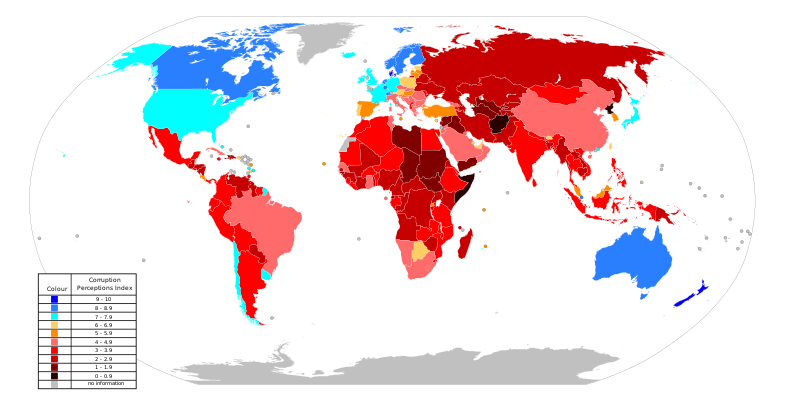India, the seventh largest country on the globe and the second most populous, currently lies just outside the top-ten list of countries ranked by GDP. India boasts of one of the earliest civilizations on the planet - Mohenjo-daro and Harappa dating back to around 3000 BCE, but I'm sure you know all these things... And I'm positive it's not something you will miss telling your foreigner pals while hanging out in a bar. I am also certain that you say it with so much pride, you are almost taking credit for establishing the Indus Valley Civilization! There's nothing wrong with that, of course... Every nation must be proud of its history.
 I suppose we're also the world's largest producer of wheat and the second largest producer of rice... but since we eat all of it, it mustn't count. The only things which get out of the country, unconsumed by the billion people, are cotton, textiles, diamonds and jewelry; not much else. Anyway, all this doesn't matter. Because I'm going to tell you today how all these stories are well-worded 'feel-good' statements which mask the ugly truths which lie underneath.
I suppose we're also the world's largest producer of wheat and the second largest producer of rice... but since we eat all of it, it mustn't count. The only things which get out of the country, unconsumed by the billion people, are cotton, textiles, diamonds and jewelry; not much else. Anyway, all this doesn't matter. Because I'm going to tell you today how all these stories are well-worded 'feel-good' statements which mask the ugly truths which lie underneath.
So, you see, it's not a case of excelling in one field and thus failing in another. We're sucking across the whole gamut, with the exception of Bollywood, which the world knows for its colours and dance routines and Cricket, which is followed closely by a few people in 12 different countries.
But it doesn't end there, does it? You inevitably mention a few more fabulous aspects about the nation hoping to leave your differently skinned friends reeling in awe. Let me give you a few examples: (1) The Republic of India has the third largest military force in the world. (2) Along with Pakistan, Sri Lanka and a few other tidbits, India forms the only subcontinent in the world - replete with every fathomable geographical feature; mountains, plains, marshes, plateaus, deserts, rivers, lakes and seas - we've got the lot. (3) We have the third largest pool of qualified engineers in the world! (yes, I bet you didn't know that) (4) And we're one of those elite few with nuclear power - wait, Pakistan's got that too, no? Okay, we've gone to Space. Ha ha, take that!
 I suppose we're also the world's largest producer of wheat and the second largest producer of rice... but since we eat all of it, it mustn't count. The only things which get out of the country, unconsumed by the billion people, are cotton, textiles, diamonds and jewelry; not much else. Anyway, all this doesn't matter. Because I'm going to tell you today how all these stories are well-worded 'feel-good' statements which mask the ugly truths which lie underneath.
I suppose we're also the world's largest producer of wheat and the second largest producer of rice... but since we eat all of it, it mustn't count. The only things which get out of the country, unconsumed by the billion people, are cotton, textiles, diamonds and jewelry; not much else. Anyway, all this doesn't matter. Because I'm going to tell you today how all these stories are well-worded 'feel-good' statements which mask the ugly truths which lie underneath.
Listed really high in the National GDP chart, India does really poorly on the per capita basis. Well, you knew that... And I knew that. But I didn't know it was this bad: $1389/capita-year according to the IMF puts us in the 140th place in a list of 182 countries. It only gets worse as the Rupee continues its plunge towards 60 to a Dollar.
Let's talk about the military forces now: most of us start feeling secure listening to the 'third largest military force' quip time and again. However, it must be known that as soon as you divide this number by the number of people inhabiting the country, we end up with the following ratio: 1.1 Active soldiers per thousand citizens, which is incidentally ranked 149th in the world. Alright, we don't have to be North Korea which has nearly 50 per thousand, but this extreme is equally crazy.
Long gone are the days when the subcontinent was protected from foreign invaders by a wall of high mountains in the north and the mighty seas in the south. No longer can the way the earth is sculpted be considered a serious security measure, but these geographical features offer us a plethora of other opportunities - all of which we have failed to grasp. Tourism and agriculture are two activities we have ceaselessly contrived to fail at - and we've done it in style!
Most credible tourism companies don't even give India a rank when it comes to international visitors! Despite being one of the oldest continuously inhabited places, having some of the most picturesque places and boasting of some of the most evolved cultures known to man, India manages a paltry five million international tourists every year. Contrast that with China which sees over fifty-three million visitors annually; no, we must stop comparing ourselves with the Chinese. All those India-China surveys are lies - and we're not catching up.
Agriculture and allied sectors like forestry, logging and fishing accounted for 15.7% of the GDP in 2009–10, employed 52.1% of the total workforce; all this with the most naturally fertile land in the world. When we talk about revolutions in the sector which employs more than half of the people in India, we shouldn't have to quote MS Swaminathan's Green Revolution (1963) as the last good thing that happened. Actually, Dr. Swaminathan, with all due respect was only responsible for implementing the methods of Dr. Norman Borlaug, an American agronomist, who was actually responsible for the revolution.
So what exactly are these one billion Indians achieving? Becoming engineers in hordes, I suppose. Third largest squad of engineers in the world... and what have we got to show for it? The foremost institutions in the country, the IITs, are completely unknown once you exit the borders. And why should they be known? It's not like they're doing any remarkable research or transforming India into an engineering superpower. Mostly, engineering institutions across the nation are producing unambitious people who just want to do management or worse, who join one of those companies which outsource work from the United States and allied countries. Well, the Outsourcing industry does contribute around 28% of our total GDP, but isn't it a very temporary solution? I don't think a country's development can be based entirely on how much work it can do for another. We need to start producing things. Ourselves.
And now that we've established that we've got a surplus of farmers and engineers, how're the other professions doing? According to a recent survey, there are around 50 physicians per 100,000 Indians and I shouldn't have to tell you how bad that is. According to the World Health Organisation, 900,000 Indians die each year from drinking contaminated water or breathing polluted air. And why wouldn't they die?
This is not a time for incremental change - it is time for a full scale revolution. And we, as a people, are more than capable of making it happen. We've achieved far more difficult things in the past and there is no reason this revolution will not come. Sixty years ago, there was no tangible connection between the different people who inhabited this country - no common language, no common origin, not even the same religion - yet, we have survived. Not just survived, we have grown... without any major civil war! That's a credible achievement to say the least. In 1950, the world was worried about leaving such a large country completely in the hands of a few people who had never known the meaning of freedom until then. Today, we can look back proudly and say we've made it. This is a real achievement and no one can take anything away from it.
The fact that we're doing so poorly on so many fronts must not deter us one bit! Every thing we are lagging at is a serious business opportunity. No longer must we rely on governments bringing legislation to improve the condition of the people, only to be completely undone by the subsequent government. True, legislation is the easiest and most successful way to bring about change. But we shouldn't sit on our backsides and hope that change will come! Scams will happen, corruption will continue and red-tape will make things very difficult for the common man. But there is still a way. Sleep six hours instead of eight. Forget about that extra one million rupees in profits and do something for the country. And don't wait for the goddamned government to bring the revolution. You must do it yourself.
As M.K.Gandhi said, "Be the change you want to see in the world."

